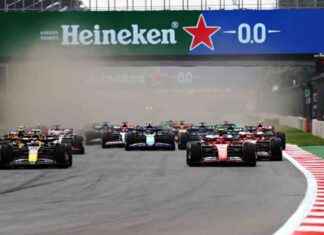MADRID, 2 Abr. (EUROPA PRESS) –
The European Commission will announce this Monday if it approves without conditions or sends to an in-depth investigation, also known as phase 2, the merger between Orange and MásMóvil, which would create a new customer leader in Spain.
All parties take it for granted that the Commission will send the operation to phase 2 due to its size and the complexity of the analysis of the telecommunications market in Spain.
The president of the National Commission for Markets and Competition (CNMC), Cani Fernández, herself predicted a “very thorough investigation” of the operation in the Congress of Deputies last week.
The Spanish regulator has claimed for itself the analysis of the operation, although it is also assumed that the European Commission will dismiss its claim and take over the investigation from Brussels.
However, Fernández showed his intention that there be a “very close collaboration” between the CNMC and the community authorities and valued the work carried out by the organization in the purchase of Euskatel by MásMóvil itself.
The entry into the in-depth investigation phase will mean that the operation is delayed at least until the end of the year, with the option of even being approved as early as 2024.
Recently, the European Commission approved with conditions the purchase of two operators in Belgium by Orange as a result of an investigation opened in July and in a smaller operation than the one involving the French operator with MásMóvil.
Likewise, the new phase will formally open the debate on what conditions the companies must offer to Brussels to approve the operation. The former CEO of Orange Spain, Jean François Fallacher – now CEO of Orange France – warned that the operator expected that there would be practically no conditions.
Both the CEO of MásMóvil, Meinrad Spenger, and the president of Telefónica, the biggest rival of the future company, have also joined this thesis.
Last Friday, José María Álvarez Pallete again stressed during the operator’s shareholders’ meeting that the ‘remedies’ of the merger should be minimal or not exist.
The president of Telefónica has remarked that the operation could be “emblematic” for the consolidation of the European telecommunications sector, in the event that the Commission approves the operation with almost no obligations or disinvestments.
The reasons put forward to support this thesis is the existence of almost a dozen operators that bill more than 100 million euros in Spain and the hyper-competitive nature of the sector, both at a retail and wholesale level in the field of fiber optics.
One of the objectives of the directors of the sector in Spain is to avoid that the operation ends up reinforcing a fourth operator, presumably Digi, which maintains tension in the market.







